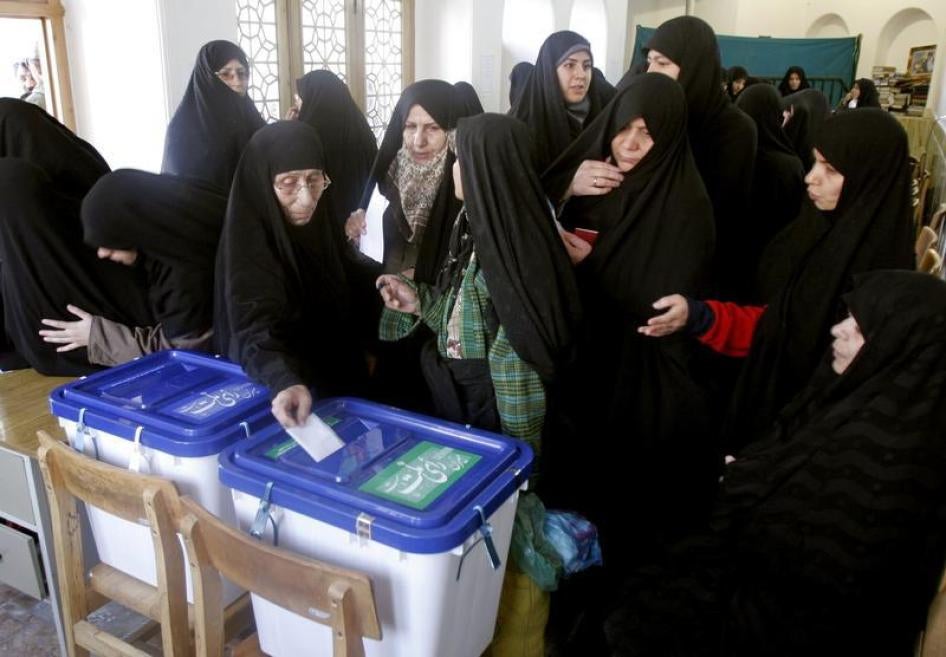Authorities in Iran are threatening new restrictions on non-Muslims seeking to run in next month’s local elections.
Just one week before parliament is to approve a list of candidates, a letter published this week by Ayatollah Ahmad Jannati, the head of the Guardian Council, declared it is against Sharia (Islamic law) for non-Muslims to be candidates in Shia Muslim-majority areas in city and village council elections. These contests, along with the presidential election, are set for May 19.
|
Dispatches
Iran’s Guardian Council Tries to Exclude Non-Muslims from Running
But Parliament Resists Push to Curtail Election Rights
Your tax deductible gift can help stop human rights violations and save lives around the world.
Region / Country
Most Viewed
-
November 25, 2019
A Dirty Investment

-
June 3, 2025
“They’re Ruining People’s Lives”

-
November 20, 2024
The Man Who Bought The World

-
December 21, 2023
Meta’s Broken Promises

-
February 7, 2013
Breaking the Silence




